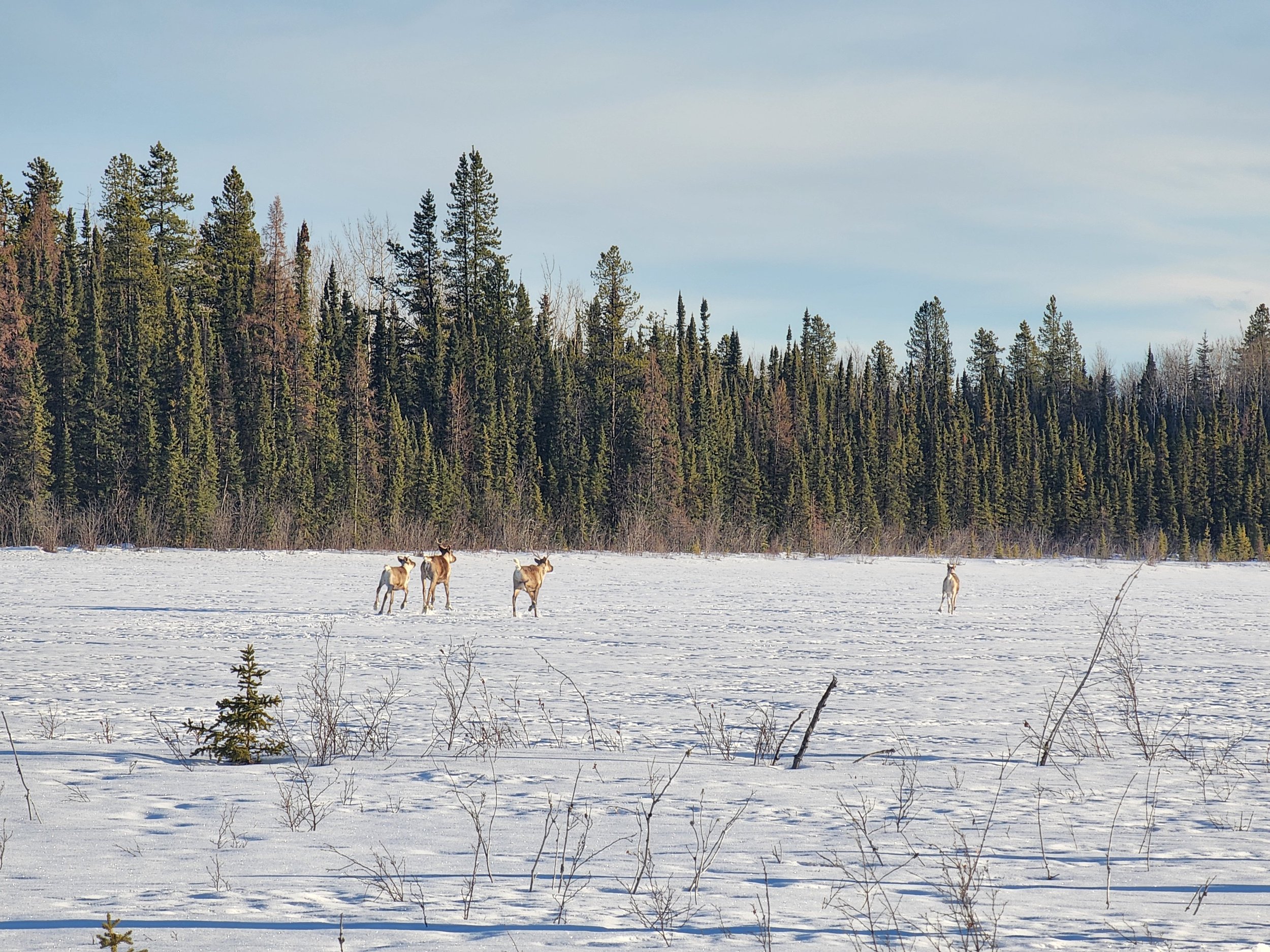
Chinchaga Caribou Herd
DNA Surveys
Boreal Caribou Conservation in Northwestern Alberta
About the Project
As part of the ongoing conservation and management of Alberta’s Boreal Caribou herds, the Government of Alberta (GoA) initiated fecal DNA mark-recapture surveys to develop estimates of caribou population size and inform wildlife managers on necessary actions to support population conservation and recovery. In winter 2022-23, EPA required the contracting of biological professional services to assist in delivery of non-invasive genetic sampling surveys within and adjacent to the Chinchaga caribou range in northwestern Alberta.
The Chinchaga Boreal Caribou Herd
The Chinchaga caribou herd, located in northwestern Alberta, represents a key group within the broader context of woodland caribou conservation efforts in the province. As of the most recent updates, this herd is considered part of the threatened woodland caribou populations under the federal Species at Risk Act. The challenges facing the Chinchaga herd are emblematic of the broader pressures on caribou populations across Canada, including habitat loss, predation, and disturbances from human activities such as industrial development and resource extraction.
Efforts to monitor and support the Chinchaga caribou herd include ongoing habitat protection measures, predator management strategies, and landscape planning to mitigate the impacts of human footprint. These efforts are crucial for maintaining the ecological balance and ensuring the survival of this species, which is an important indicator of boreal forest health. The Alberta government, in collaboration with environmental organizations and local stakeholders, continues to implement recovery strategies aimed at stabilizing and eventually increasing the herd's population, which has been in decline for several decades.
Our ROLE
Black Fly supported Alberta Environment & Parks (AEP) in a program to monitor caribou populations through fecal DNA mark-recapture surveys in the attempt to map out caribou distribution and genetic diversity within northern herds. In the winter of 2023, Black Fly performed aerial surveys to assist in the delivery of non-invasive genetic sampling within the Chinchaga caribou range in NW Alberta. Monitoring efforts support the implementation of provincial species recovery plans and responsibilities under the Alberta-Canada Agreement for the Conservation and Recovery of the Woodland Caribou in Alberta.
In general, delivery of these surveys required survey crews to fly in helicopters along established transects, identify caribou foraging locations and land in close proximity. Under the direction/supervision of EPA crew leads, survey crews navigated to the site on foot and collected caribou fecal pellet samples for later analysis.
Key Project Services
Senior wildlife biologist field services
Caribou identification through cratering sites, travel sites, and individual observation,
Caribou DNA Collection
Helicopter field services
Remote biological field work







